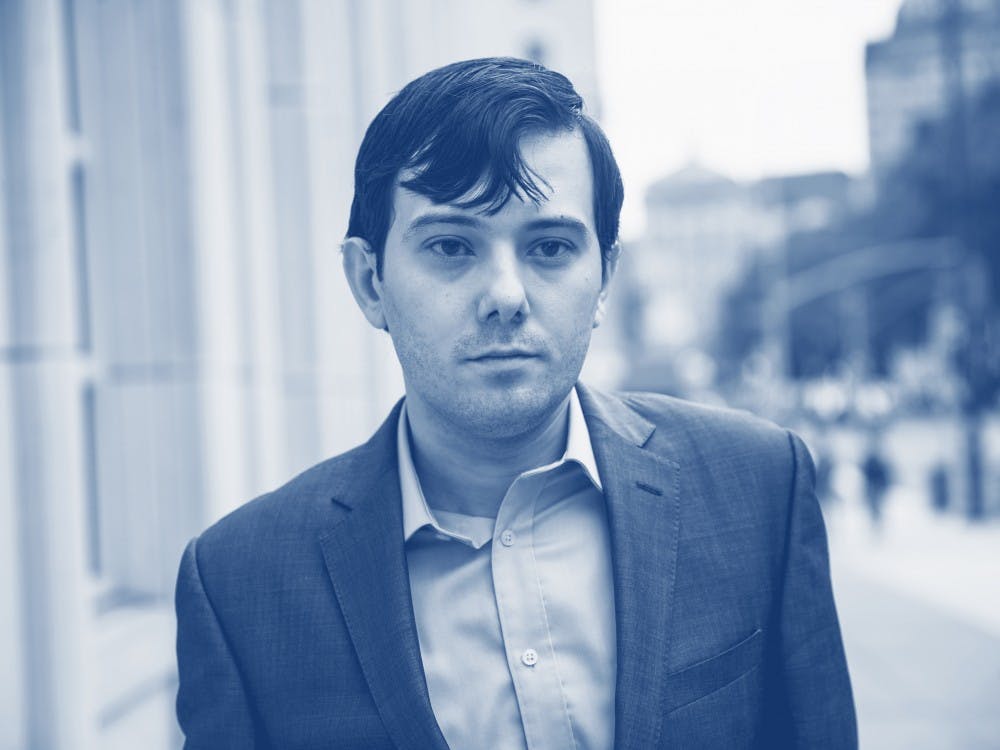The SWAT van parks and eight burly agents file out in silence. The last one out brings the battering ram. They shuffle up the stairs in unison and line up outside the door. The signal is given and the door is blown off its hinges. From there it’s boot camp all over again. Everyone has their own job, everyone has their own route, but they all end in the back room. Weapons drawn, they carefully approach the monster in front of them: 14-year-old Kevin, who has spent the last few hours listening to every “Yandhi” leak he can find.
Leaks are not new. In the 1900s, people would buy illegally pressed copies of albums on vinyl or CD and would sell them with an upcharge. Only the free market’s election of streaming as the preferred method of music consumption ousted the for-personal-profit bootlegging that dominated the 20th century.
There is no reason to buy illegal copies of individual albums if one can get hundreds of millions for the same price. But, there is no lasting satisfaction in the human nature. Once one door opens, we beat ourselves bloody trying to pry open new ones. Now that we have access to all approved music, we want the rest.
A large percentage of rappers make hundreds or thousands of songs per year. During his prodigious peak, Lil Wayne famously spent 14 hours in the studio per day, absently freestyling over various beats, resulting in a mountain of source material from arguably the most talented rapper of all time. NBA Youngboy reportedly has over 10,000 songs in his “vault,” and unfortunately this is all too common. Kanye and Kendrick Lamar, both painstaking perfectionists, have over 40 songs together in their respective vaults. This is unbelievable. The two most talented individuals in rap have hours of music together, and only one public collaboration. The fans yearn for this forbidden fruit.
Further, artists, especially Playboi Carti, Lil Uzi Vert, Kanye West and Travis Scott often announce release dates for their projects only to habitually miss them. The fans stay up until midnight on the “drop date,” refresh Spotify every 30 seconds until 2 a.m, and eventually have to choke back rage. It is a betrayal of their loyalty. But, less dramatic than that, it’s endlessly annoying.
Hackers, record label interns looking to make a name for themselves and modern day supervillains such as Martin Shkreli, decided to do something about this torture: leak everything they can. If they are given a copy of a song or album, they may post it onto SoundCloud, Reddit or an even shadier part of the web. Though important leaks are inevitably scrubbed from the internet, as long as people see it, the game is won — I mean lost, for all you FBI agents out there.
The online presence, RareTrackz, named after the legendary series of Beatles leaks “Ultra Rare Trax,” is a fascinating by-product of leak culture. It is a completely illegal, yet inexplicably public account which collects, curates, and organizes snippets of unreleased music for general consumption. They never leak anything themselves, opting to serve instead as a library filled with forbidden knowledge acquired elsewhere.
RareTrackz is not for musical appreciation. The songs are curated, necessarily, by rarity, not by quality. The music that artists actually take the time to mix properly, rework, scrap, revisit and eventually finish is obviously going to be far superior to amateur leaks often engineered by fans using primitive DAWs.
However, for many fans, leaks are currently the best thing about rap music. It is a wonderful invasiveness to see the unpolished mechanisms of their favorite artists. Further, a decent amount of leaks are post-mortem, and listening to the final chapters of Mac Miller and XXXTENTACION can be as nostalgic as it is heartbreaking.
In an immortal RareTrackz spreadsheet, leaks taking the form of 30-second beat loops married to dirty acapellas, full-length unreleased songs, flippantly intoxicated freestyles, and an original version of Lil Wayne’s Tha Carter V stand boldly, daring the State Department and its high school dropout son, the Office of Intellectual Property Enforcement (IPE), to do something, anything, to stop their distribution.
To take any action, involved artists would first have to notice. If sufficiently irked, they could report their Instagram account, sic their legal team on the admin, or even file an IP lawsuit. But, long before things were blown that hilariously out of proportion, Instagram’s banhammer would come down upon the account with the force of Jupiter’s bolts.
Then the mantle would be taken up by a new account, with a smaller following, and the process would begin anew. It is comically futile to fight IP infringement in the information age. Once released, data can never be recovered. To try would be to try to re-bottle cognac poured into the Pacific Ocean, particle by particle, and hunting down the opportunist fish who gulped some down.
Though artists feign fury at this exploitation, they directly benefit from leaks, and they know it. Like Playboi Carti, all rappers with thriving leak profiles enjoy free mystification and community involvement. It proves that people care enough about their music to put themselves at legal risk to distribute it. Other than posting idle threats mainly to protect their pride, artists do nothing to protect themselves from leaks for this very reason.
The SoundCloud era peaked around 2016 and since has been slowly losing its momentum. Leaks, however, are on the rise. New people are constantly becoming aware and falling in love with the sense of power they afford. The tunnels are growing, new channels are popping up all over the place, and people are falling faster than ever before.
Get The Chronicle straight to your inbox
Signup for our weekly newsletter. Cancel at any time.

